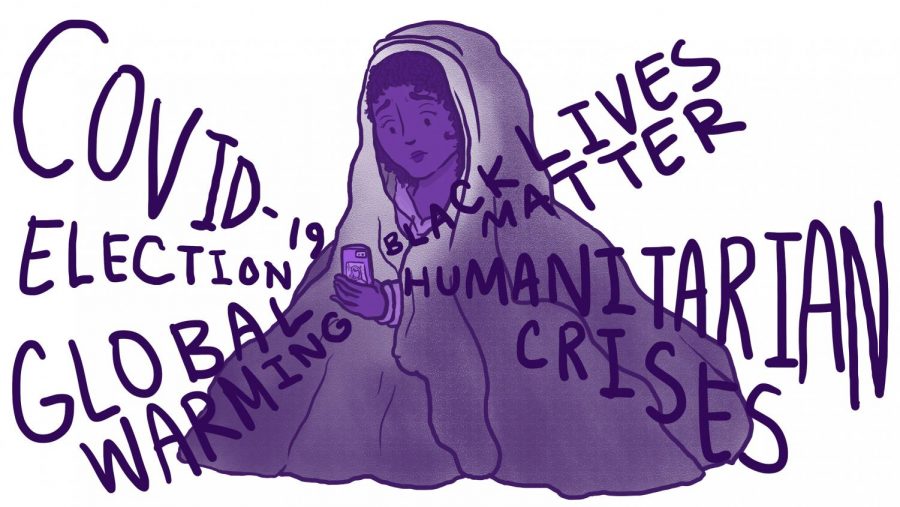A Year Later: Many Suffer COVID-19 Blues
(Lydia Shin/iGeneration Youth/TNS)
According to the National Institute of Health, “Remote learning, physical isolation from friends, missing out on the rites of passage, seeing loved ones get sick … all of these things are making it even more difficult to navigate the maze and pressures high school life has.”
March 2020. A long spring break. The students in the Warren Hills Regional School District were so excited to be out of school for two weeks… until quarantine continued way longer than anticipated. Sports, clubs, classes were all canceled. As a result, students’ collective mental health took a hit.
The Guidance Department at Warren Hills has seen worsened mental health as a result of the circumstances surrounding the COVID-19 pandemic.
“The changing routines, social isolation, fear, grief, uncertainty, ongoing stress–all of these factors are affecting people in different ways,” said Guidance Counselor Christal Barr.
The Guidance Department has been working tirelessly to increase support while remaining easily accessible to all students at Warren Hills.
“The Guidance Department continues to have an ‘open door’ policy with students even during remote learning,” Barr said. “Students can request appointments by completing a Google Form or by simply sending their counselor an email.”
The National Institutes of Health (NIH) recognizes that a large need exists for increased access to mental health assistance for teens.
“There is a need to ameliorate children and adolescents’ access to mental health support services geared towards providing measures for developing healthy coping mechanisms during the current crisis,” the federal agency says on its web site
COVID-19 has upended lives for nearly a year. Students have faced death, a struggling economy and a polarizing presidential election.
On top of the major issues happening in the United States, students have faced isolation, canceled events and shortened sports seasons. They have been forced to relearn how to do things they used to do every day with little to no thought. These circumstances are the perfect recipe for anxiety, depression and a range of related mental illnesses.
At the beginning of the school year, students were thrown into a new schedule, unsure of what to do next. They have been forced to stare at a screen for hours on end, watching the amount of work go up and their motivation go down.
“I can see the work piling up, and I want to do them [school assignments], but I just have no motivation to ever do them,” said sophomore Mekhi John.
While such adversity can make young people just that much stronger, they must also realize that mental health is a top priority.
Warren Hills offers mental health services to students and their families through the School Based Youth Services Program of The Family Guidance Center of Warren County. The school’s web site contains a link to the program. Attempts in January to reach program officials through email for comment were unsuccessful.
NIH shows large levels of concern about teenagers’ mental health and how this will affect them in the future.
“There is a pressing need for planning longitudinal and developmental studies,” the NIH says, “and implementing evidence-based elaborative plan of action to cater to the psycho-social and mental health needs of the vulnerable children and adolescents during pandemic as well as post pandemic.
At this point, students need to learn how to cope when feeling anxious, depressed, etc. Barr offers some advice to teenagers everywhere who are struggling.
“If you are struggling with something, big or small, please reach out to an adult–be it your parents, your counselor, your teachers, a coach or a close family friend,” she said. “Share with us what is going on and tell us how you feel.”





